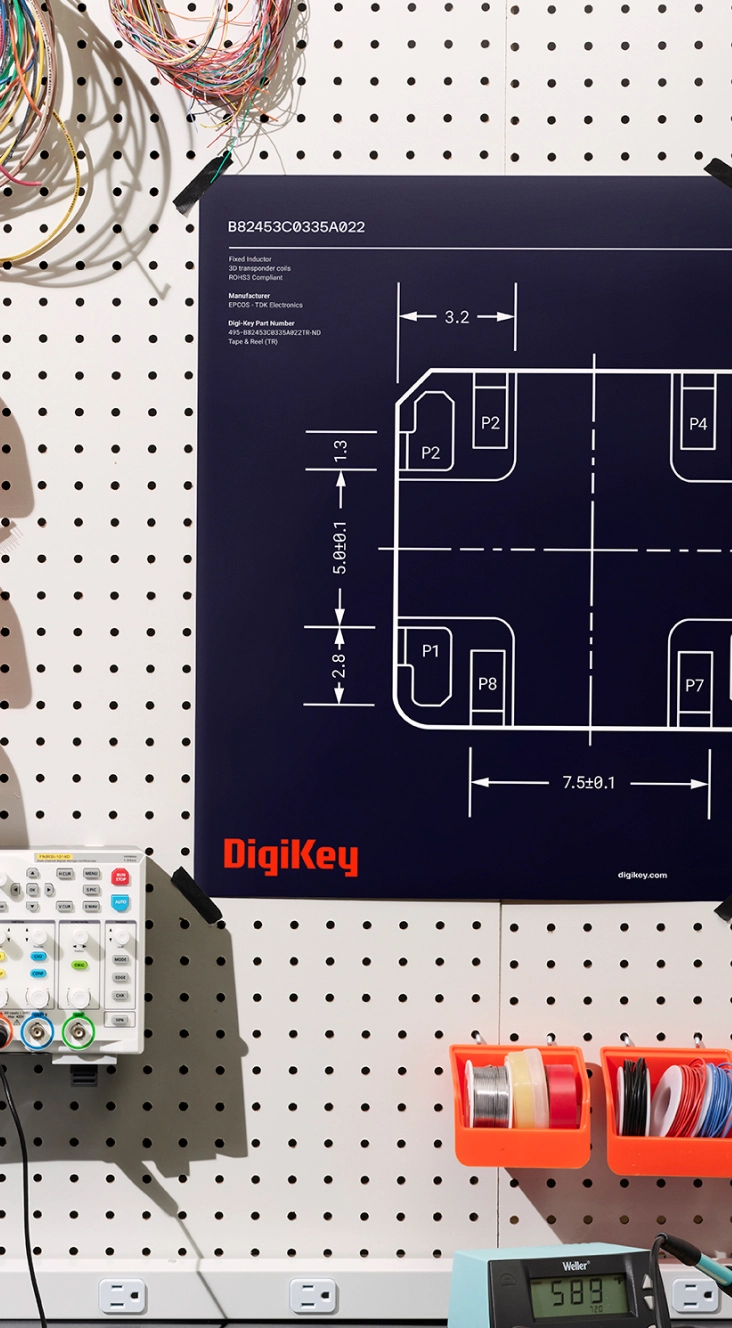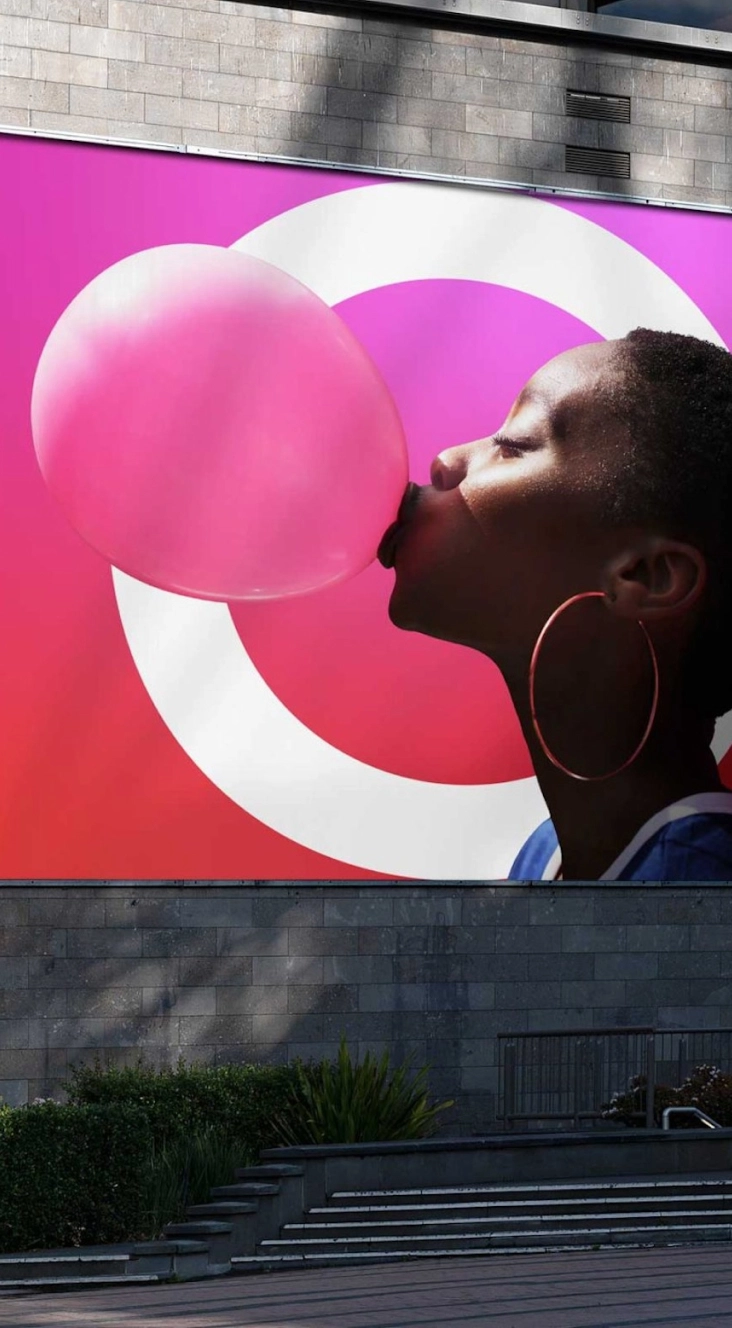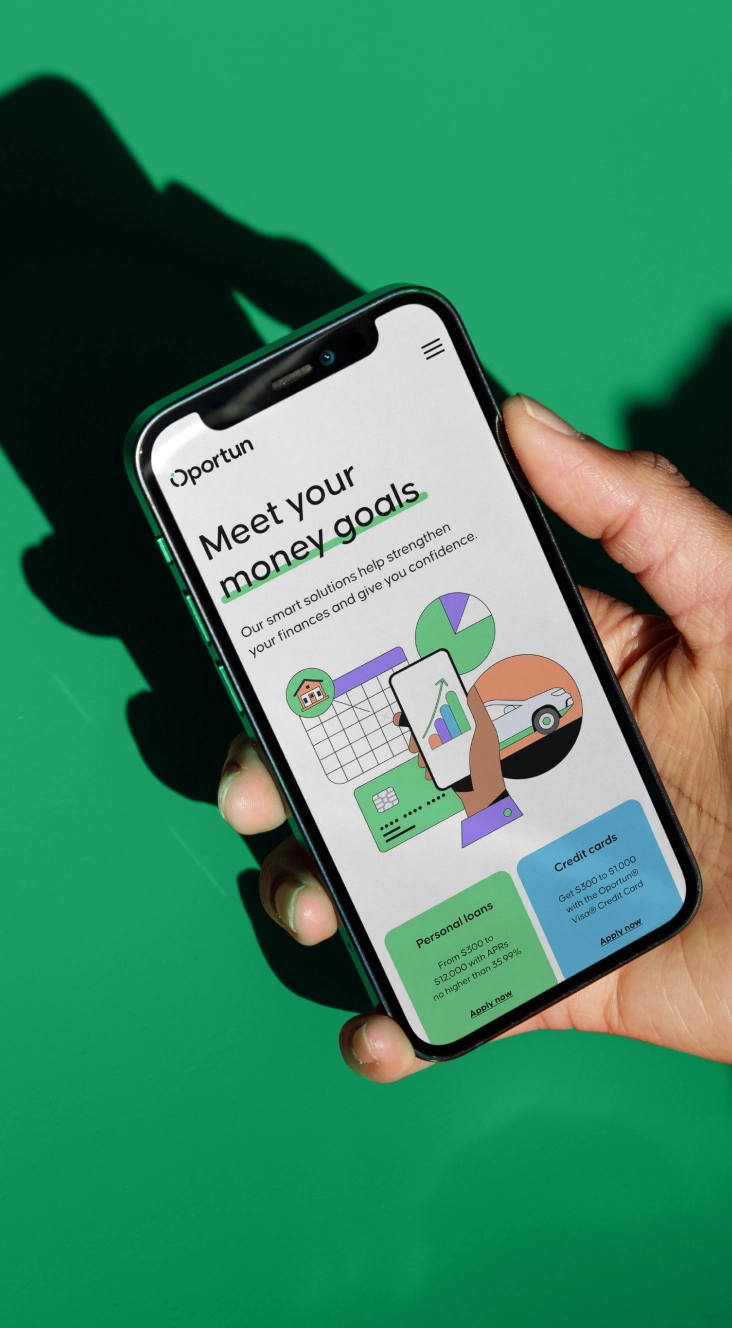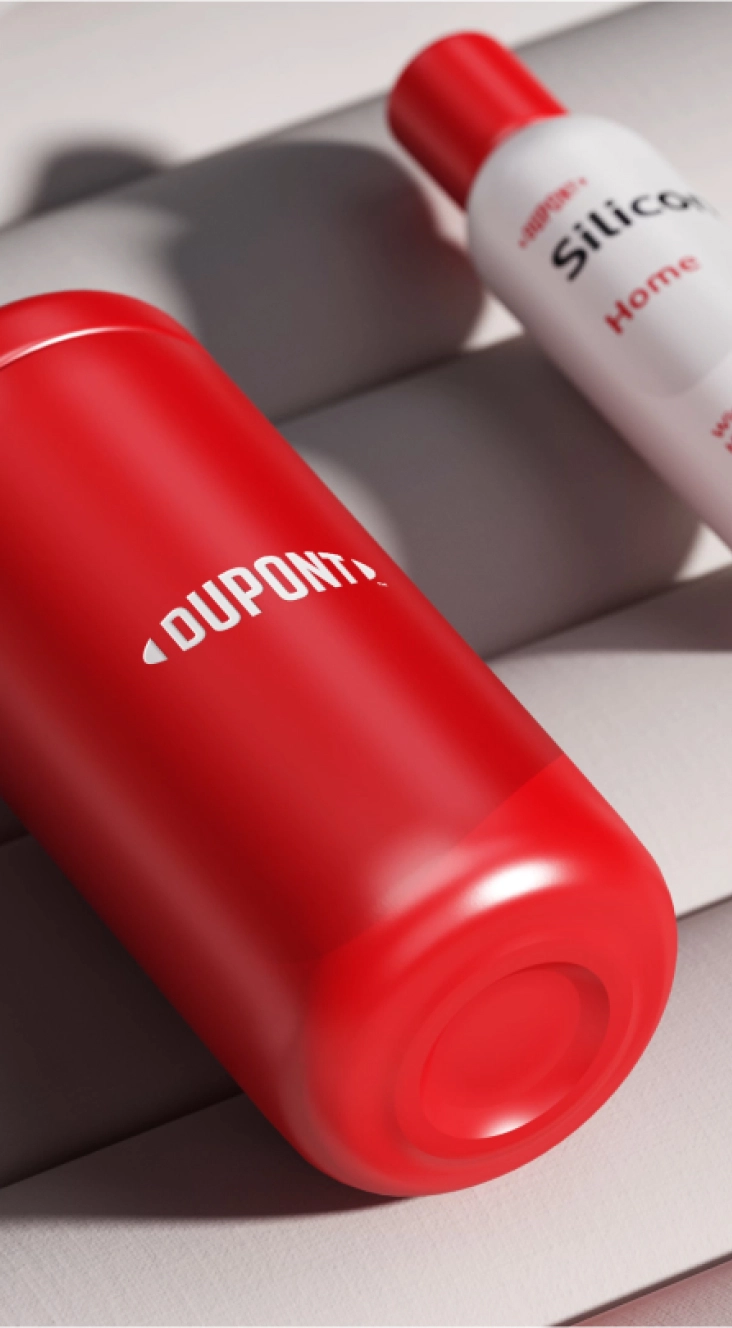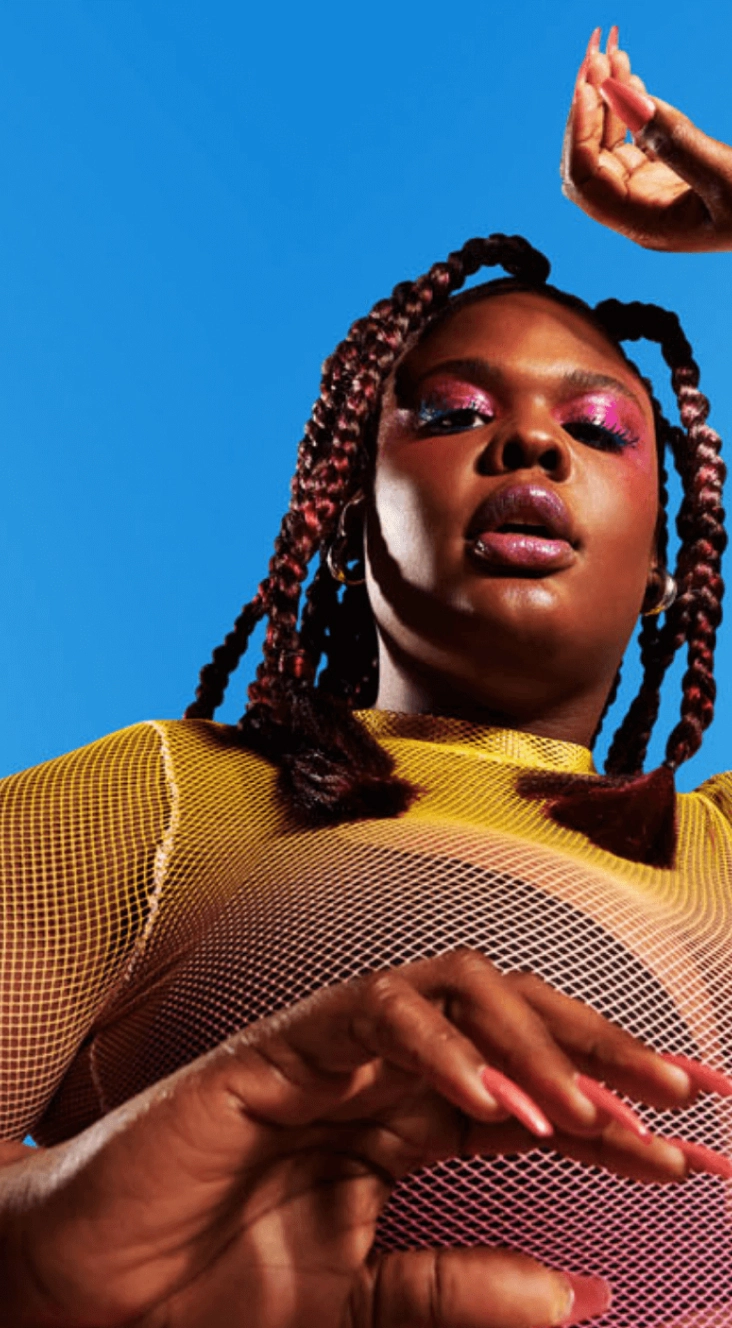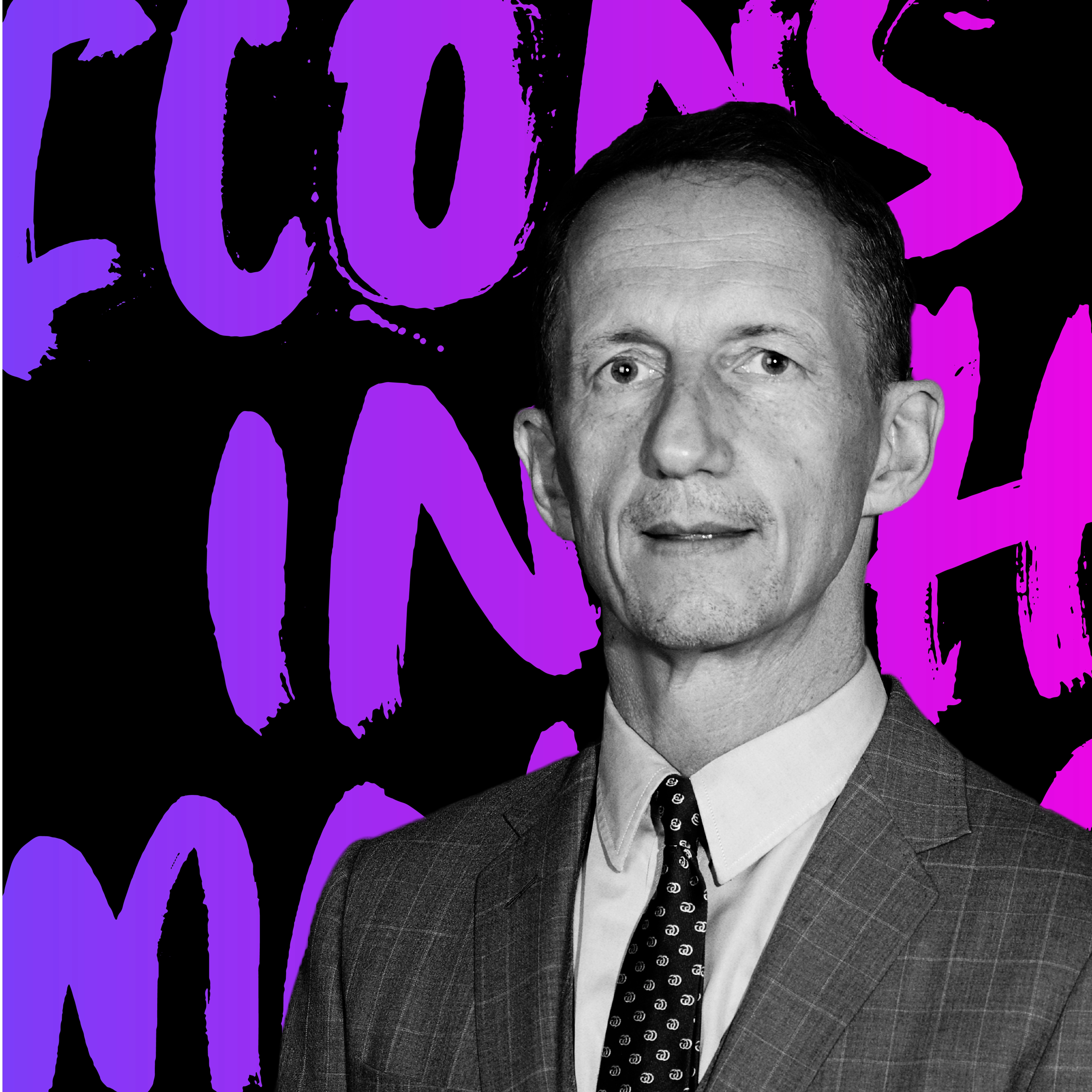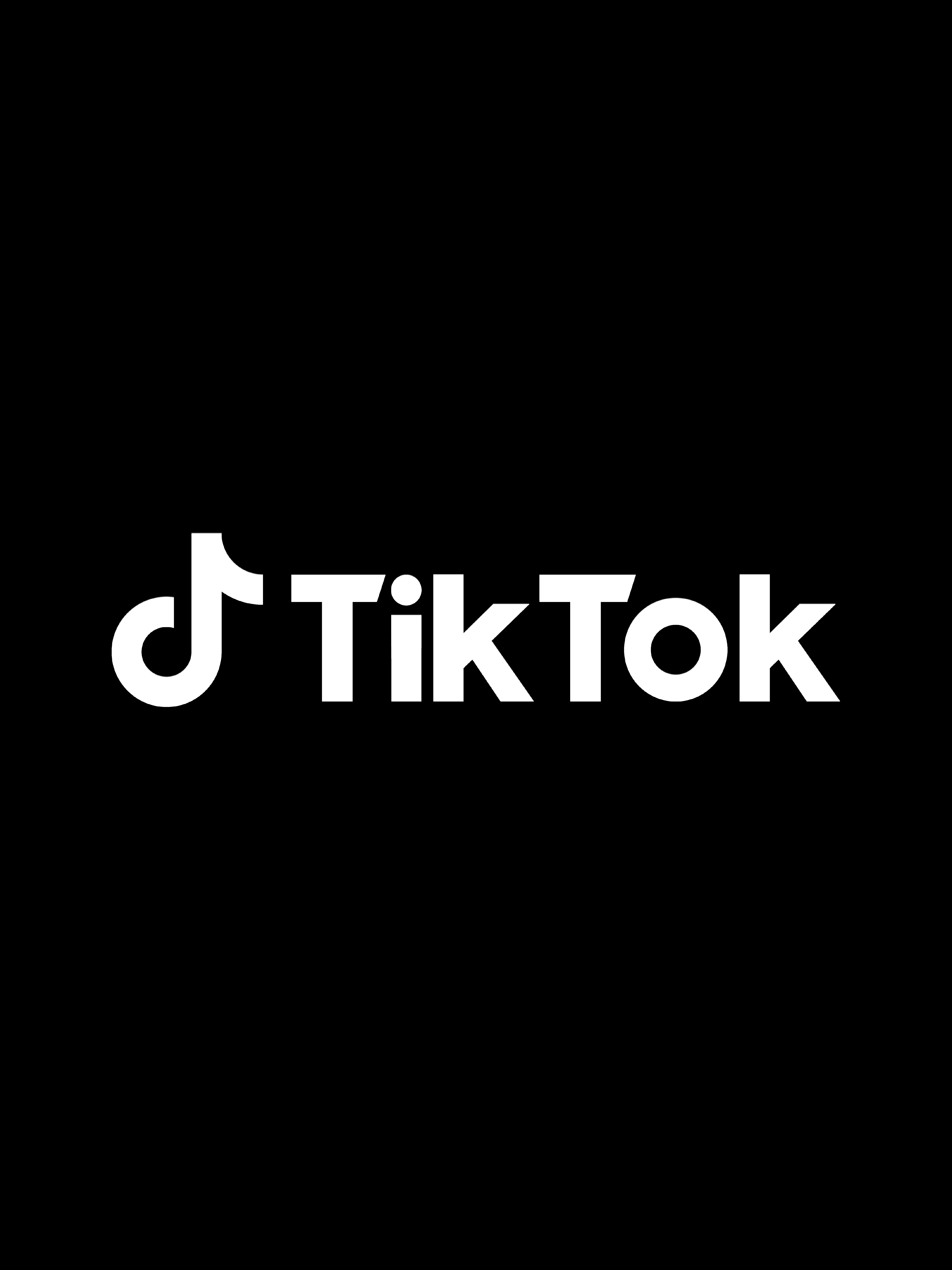Despite its 100-year legacy, Gucci has managed to stay iconic while constantly evolving. At the helm is Robert Triefus, who has been instrumental in the brand’s exploration of the digital landscape. As the newly appointed CEO of Gucci Vault and Metaverse Ventures, Robert discusses Gucci’s brand strategy for empowering self-expression, the yin and yang of business and creativity, and more.
Heather Stern: What comes to mind when you hear the name Gucci? High-end luxury? Coveted fashion? An iconic brand? A dancing Harry Styles? But what about experimentation, community, sustainability and digital clothing? The truth is, Gucci is all of these things and more. For over a century, the brand has managed to stay iconic while continually evolving. At the helm is Robert Triefus, Senior Executive Vice President of Corporate and Brand Strategy and also the newly appointed CEO of Gucci Vault, an experimental online space and manifestation of the company’s metaverse strategy—and another example of the brand's exploration into uncharted fashion territory. Robert has been climbing Gucci's ladder since 2008 and now, in partnership with its CEO and an amazing team, is nurturing the brand's past while paving the way for its future. I'm thrilled to have him with us today. So welcome, Robert.
Robert Triefus: Thank you. It's a pleasure to be with you.
Heather: I think I stand in the way between this and happy hour in Milan on a Friday? So maybe after this, you'll have one for both of us.
Robert: Be sure of that, but I'm very excited to have a good conversation first.
Heather: Fantastic. So gosh, you are already in a position where you are overseeing corporate and brand strategy, and last week you were appointed to this exciting role—I think it's a first of its kind—as CEO of Gucci Vault and metaverse ventures. It seems like a huge job and a very exciting one. Tell me about your vision for success, how these roles complement each other and what your thoughts are for the future.
Robert: Well, I think in the introduction you referenced a number of important elements of Gucci's history and its DNA. We're a brand, as you say, that has lived one hundred years that have been filled with exciting narrative stories. And as we started to embark on our next one hundred years, innovation, disruption, community…these are all imperatives for us, because we believe that, as a brand today—a successful brand, I should say—you have to be willing to embrace innovation. You have to understand how to build engagement with your community. And, of course, you have to look at embracing what the world stands for today and what new ideas, what stimulations are out there for both brands and people. Of course, the metaverse probably represents that more than anything today. I'm often asked, ‘Well, what does the metaverse represent?’ I think probably it represents the blurring of our existence between physical and digital— in a kind of general sense. And, of course, there are many new ideas, opportunities, technologies that are other foundations of what the metaverse can represent in the future. The Vault is Gucci's playground, in a way, where we get the opportunity to pilot, to experiment and, ultimately, to test for and learn opportunities that we can scale in the future.
Heather: I love this juxtaposition of the runway, the physical runway, with now this virtual world where people are coming together. Quite frankly, people that may not have ever have had the opportunity to be at a Gucci fashion show or maybe even purchase a Gucci item but are there, and they're engaging—whether it be NFTs or being part of partnerships with Roblox. I mean, you've done things that no one else has really done before. What's been surprising? And how does the community play a role in all of it?
Robert: Just over 20 years ago, Gucci was one of the first, if not the first, luxury brand to embrace the idea of e-commerce and was one of the first brands, therefore, to open a site that offered that potential to its customers. It really marked the beginning of a journey in the digital landscape and of exploring the digital landscape. We've really been in an evolving digital revolution over a very extended period of time, and that has manifested itself in many different ways. So, as I say, thinking about e-commerce—if we think about social media, AR, VR, gaming…these are all manifestations, if you will, of a digital revolution that has slowly but surely embraced our lives. And, of course, with the Covid pandemic to a degree, this was a catalyst that made that experience of the merging of our physical and digital realities move even more quickly, because we had to adapt. We were pretty much all locked down. And it's thanks to technology that we were able to keep connected with family, with friends, with businesses, with customers. So, as we think about digital, Gucci has always taken the point of view that we should embrace opportunity and lean into opportunity. That doesn't mean to say that we just embrace technology for technology's sake. What we look for are opportunities that can enrich and improve the experience that our customers have, and that can lead to deeper engagement with our community. And our community, by the way, we think today that Gucci has over 100 million followers across all of our platforms, social media platforms; and we have upward of 600 million visitors to Gucci.com in a year. This is an indication of the extent of our community. Not all of those represent actual customers; many of those can be individuals who are appreciative of the storytelling that we bring to life. So, that's an exciting opportunity. And the only way that you can really take advantage of that kind of opportunity is by leaning into the next technology. We feel that this is the next chapter in a continuation of the digital opportunity.
Heather: So, again, these two hats that you're wearing—head of Corporate and Brand Strategy and now CEO of Gucci Vault—do you see them as, in a way, one and the same and part of an overall umbrella? Tell me about now taking on this other role and some of the priorities that you have.
Robert: Prior to the role that I have today, I was overseeing what we call Brand and Client Engagement, which essentially is fundamentally about how the brand is perceived and positioned to respond to the desires of our customers. At the very center of what Gucci stands for is this notion of empowering self-expression. So, the answer to your question is this: As we look at how this brand engages with its stakeholders, and particularly its customers, that idea of empowering self-expression is at the core of what we represent and how we want to build our strategy. So, the Vault and the metaverse—as we think about what they offer us and the opportunity that they offer the brand and the community that we build around this brand—that notion of empowering self-expression becomes even more powerful. Because—if you think about, again, our reality today as individuals that live in a physical world and, increasingly, in a digital world—oftentimes individuals may feel more free to express themselves in the digital world than they do in the physical world. So, if Gucci can straddle those two worlds in a very thoughtful way, but also a way in which we can help to empower that self-expression, then we're kind of winning in both those realities.
Heather: So, self-expression, empowerment…you've talked a lot about values and the values that are core to the brand, that guide the decisions that you make around, certainly, product and partnership and the way you communicate. Tell me more about this values-driven approach.
Robert: More than ever today, I think that corporations and brands are expected to take a stand and to have values that they believe in. For Gucci, as we go about our business and we go about the business of making beautiful products, if we can imbue those products at the same time with values that people believe in—whether those are values that relate to minimizing the impact we have on our world, obviously in terms of sustainability, or improving the lives of people in our communities—we believe that that is fundamentally important as a business and as a brand. As I say, probably more today than ever before—and particularly among younger generations—there is a very, I would say, high level of expectation that the brands that they're involved with, engaged with, represent and share the values that they have.
Heather: I was reading about the recent fashion shows, and some of the commentary was that the Twins Show was going to go down in history. One journalist said: "For some reason, in these complicated and fraught times, the simple gesture of families holding hands held a potent, immutable power." Tell me, is that an example of a message that is part of the values and then how it kind of manifests itself within something as core as the clothes and the fashion show?
Robert: Well, I think this was a particularly emotive fashion show. The idea of holding hands…it's such a simple human gesture, but it has such meaning. And what was so powerful about this show, of course, was it coming at a time when, unfortunately around us in the world, that idea of coming together is not so prevalent. Whether we're thinking about wars or gender equality, these are important issues that we're all dealing with today, either personally or because we read the headlines. Of course, a fashion show, in Gucci terms, is our moment in time when we can really amplify messages. That particular show that you're referring to, which took place just a week ago, reached around 280 million people through views on social platforms and other kinds of platforms. And so, that message is an extremely pervasive message.
Heather: It’s pretty incredible—and even thinking about that gesture of handholding, of course, is something that we've been kind of told not to do now. It's that desire for connection; and just seeing that manifestation must have been really powerful. So…sustainability: You have definitely been at the helm, both individually and also Gucci as a brand, guiding sustainability initiatives, putting measures in place. Tell me about where you are, what you're focused on, what the challenges are. It's such an important issue, and I think a lot of brands are trying to do the right thing—but not all are getting it right. So, tell me more.
Robert: Sustainability is a topic that needs to really inform your decisions, from the top to the bottom. What I mean by that is, you definitely need to have a vision from the top that sustainability is fundamentally important to how you run your business. And we are fortunate to be part of a group, which is called the Kering Group, that is led by an individual who believes firmly that today we have to go about our business in the most environmentally sensible way. So, back in 2015, the group began to publish an environmental profit and loss account. And this is really a report card that is as important for us as it is in terms of reporting to the external world, because it tells us how we're doing in minimizing our impact on the world. Gucci, as a brand within the group, followed suit in reporting with an environmental profit and loss account. And then we took it a further step. Our CEO, Marco Bizzarri, decided that it was not good enough to wait for technology to help us minimize to the degree that we need to; in other words, to eradicate our carbon emissions. It's never enough to move fast enough. And we see around us the impact of global warming virtually every day. So, as a company and as a brand, we took the decision to become fully carbon neutral, offsetting those carbon emissions that we couldn't avoid. And the offsetting is, basically, a way of us actually investing in new ways of being more environmentally responsible. Today, we're investing quite significantly in regenerative agriculture as a way of trying to make sure that our value chain is really doing its best to protect our environment and to ensure that precious resources are nurtured.
Heather: It’s a testament to not just focusing on your immediate core offering or industry but on the whole system and the system that we all live in and all need to, in a healthy way, continue on. So, that's amazing to hear about those kinds of investments. Tell me about the partnership, the collaboration, that you have with, essentially, your counterparts in leading the company—what that looks like—and both marketing's role in being a champion for creativity but then, from a CEO's perspective, a champion for business.
Robert: Well, you know, the fashion industry is an unusual sector, because you have this kind of yin and yang of creativity and business. If it can work very synergistically, it can be very, very powerful—because creativity, ultimately, is the core of what a brand like Gucci represents. We often refer to creativity as being our North Star. And when we can be successful in empowering creativity, the brand can be most successful in engaging with our customers. So, finding that equilibrium between creative empowerment and, obviously, running a business that can be successful is, in a way, the Holy Grail. And, I would say that the storytelling that goes around that…we're thoughtful about using the word "marketing," because, at the end of the day, we tell stories. We make product. We want all of that to be wholly authentic—meaning, of course, that we take great pride in the quality of what we make and the value that that quality offers. Gucci, essentially, is made in Italy—and we believe strongly in the craft of the artisans that have passed that skill from generation to generation. But authenticity today, going back to the values that I was talking about, also means that you believe in values; and you can demonstrate that those values are at the core of your business. One of the great capacities that Gucci has to unite and convene people of like minds around ideas, creative ideas, social ideas, and of course technology. The digital landscape helps us to, in a way, amplify that very, very significantly—if we are smart in looking at how we can use platforms.
Heather: So, in terms of Gen Z, it's a topic that a lot of us talk about. The next generation, how their demands of brands and businesses, their sense of inclusion and self-expression, is just very powerful. What are you learning, seeing, as it relates to this audience? And what advice would you have for brands that are looking to engage?
Robert: It's always, I think, risky to kind of generalize. But what I would say is that there are certain characteristics that seem to manifest themselves around this generation. First of all, it's a generation that is made up of individuals who are multifaceted—and more so than any generation I've come into contact with. These are individuals who are motivated by many different things at the same time. And because of that, they become engaged in many different things at the same time. So, they are multitaskers; and they have a capability that I've rarely seen before in the way that they can bring that to life. We've talked about the fact that it's a generation that is more concerned about values and about the expectation that the brands that they're engaged with are delivering on certain values. And I would say that this is a generation that looks at gender in a different way than I think any other generation has before. I think there are these kinds of common characteristics that one can observe in this generation.
Heather: …which I think is really exciting. So, you're a week into this new dual role. What's on your agenda for the between now and the end of the year? Are there a couple of things that you're really working on that you're trying to see through or beyond? Because, again, it's a very exciting but massive space that you're continuing to pioneer.
Robert: In the next couple of months, we do have some exciting projects that we will unveil; but to a degree, it is a continuation of some of the experiments that we've been bringing to life in the last few months. I think that I'm excited by just the idea of possibility. You know, I refer to the fact that Vault is our playground. And I think that the way that we've set up Vault and the way that we've dedicated a team of individuals to the exploration of the metaverse—for a brand that's one hundred years old and for a brand that has 22,000 employees around the world—what it enables us to do is to be quite agile and experimental. And I think that it, therefore, energizes our entire organization; because everyone is proud of the fact that we are a brand that is willing to experiment, and they become inspired by it. Then, of course, as I mentioned at the beginning, if one of those test-and-learn projects proves to be successful, then we can scale it. And, of course, everyone gets in on the act then, because it becomes highly relevant for the core brand.
Heather: So, are you going to be spending more time in the digital world than you are in the physical world in the next few months?
Robert: I think that's an interesting question that applies to all of us. I think we oscillate a little bit, because there are moments where we suddenly find that we're hugely immersed in the digital world and then we have to get back to reality. And then, equally, there are times where we go: ‘Oh my goodness, I need to escape from the physical world, and I know where I'm going to go.’
Heather: Yes, it's really amazing…and especially when you just, again, think about identity and self-expression and community, that there are these two worlds and worlds within the world, and it's such a creative environment that you're working in, as you said. I mean, the craftsmanship is at the core. There's wild creativity and design all around you. Where do you get your inspiration from? Are there things that you look to or people you go to just to bring new energy and new ideas to it?
Robert: Staying curious. It's a bit of a cliché, but I think staying curious is something that drives me. When we're children, we are somewhat naïve, which is a beautiful thing because we kind of bump into things and are naturally curious. I think the older you get, the unfortunate likelihood is that you kind of believe that you've seen it, you've done it, you've been there. You should never, ever lose that sense of curiosity. And I think today, more than ever, there are so many exciting new horizons around us that we need to be even more curious than ever before.
Heather: Sometimes it just requires that you remind yourself that you haven't seen and done it all. So, it's a good reminder. And I guess as it relates to that, as you're looking for talent to join the team and join the journey, I'm assuming that that's something that you're looking for. But as it relates to skillset and experience, are there things that you're seeing now that are more important than they were before or that have changed in terms of the makeup of whom you're looking to bring onto the team?
Robert: One of the most interesting things today is that the influx of young talent that we have here at Gucci is talent that is looking at opportunities and problems in a very, kind of, 360-degree way—which is exciting. The way we built this team is to have, as I said, a dedicated team, but that team taps into the expertise that we have in functions. So, this team is surrounded by experts in our tech team, in our legal team, in our merchandising team, in our creative office. It's an agile team that is always backed up by a great deal of wisdom and specialization, and I think that's a good mix to be able to bring together.
Heather: Yes, and I think it’s something that not every business, certainly, can claim. I can understand why Gucci has held that spot. So, we've talked a lot about the business and about your roles and your leadership. I like to end each session with a question that I will ask you, which is: Who is your icon?
Robert: The person who inspires me—constantly inspires me—is actually Martin Luther King, Jr., an individual who was a great communicator, someone who believed in very deep values and believed that you could achieve those values through human empathy. All of those attributes are what inspire me so much about him.
Heather: That's pretty amazing. And I just want to thank you so much for spending your early evening with us today. We're excited to see what comes. We will either see you in the real world or in the metaverse and be looking forward to all the things that Gucci continues to do. Thank you so much, Robert. And I think I need to treat myself to “something Gucci” after this session!
Robert: It's been a pleasure. It's been a very nice conversation. Thank you.

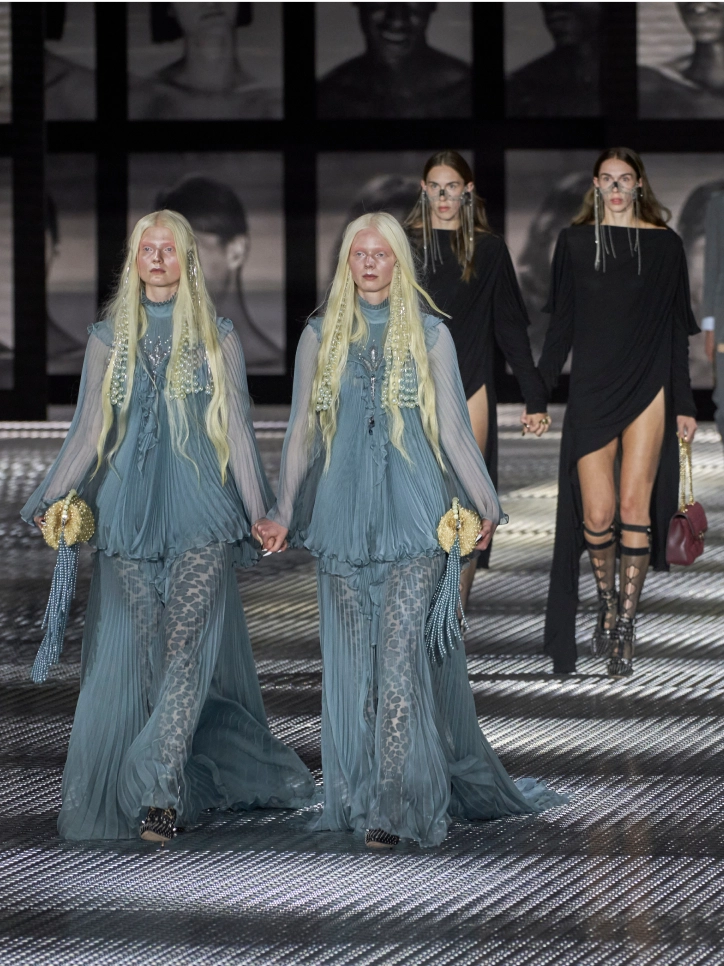

“Oftentimes individuals may feel more free to express themselves in the digital world than they do in the physical world.”


